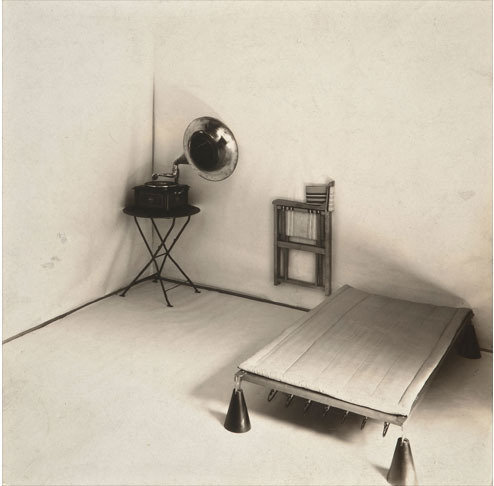Wohnungsfrage
dal 22/10/2015 al 13/12/2015
Segnalato da
22/10/2015
Wohnungsfrage
Haus der Kulturen der Welt - HKW, Berlin
The project investigates the tension-ridden relationships between architecture, housing, and social reality in an exhibition of experimental concepts for living, an extensive opening program a publication series and an academy.

How can we create affordable living space? How do we provide opportunities for self-determination? Who are today’s new clients? What new answers can be found to the age-old housing question?
Housing forms the rooms, neighborhoods and streets of our daily lives. Our personal happiness and societal well-being originate and find their expression there, as do social ills and personal dramas. But housing issues are increasingly reduced to real estate problems and disassociated from the cultural practices of architecture. And alternative players are clearly lacking. The result: Growing numbers of people are finding it increasingly difficult to gain access to self-determined, affordable housing. The HKW project Wohnungsfrage investigates the tension-ridden relationships between architecture, housing, and social reality in an exhibition of experimental concepts for living, an extensive opening program a publication series and an academy.
Berlin-based initiatives dedicated to resisting displacement, rent hikes, and the loss of public space have become the clients of international architectural practices.
In a process of constructive dialogue, housing concepts are elaborated and realized as 1:1 models within the exhibition. In collaboration with the Estudio Teddy Cruz + Forman from San Diego, the tenants’ association Kotti & Co has developed an architectural infrastructure which has evolved into the venue for negotiating new modes of living in all their manifold dimensions. The members of the informal community center Stille Straße 10, located in Berlin’s Pankow district, engage in discussions with the London-based architecture collective Assemble. Their co-operation has yielded the design of a communal house, whose individual residential units can be specifically tailored to suit each life phase and changing needs. Interfaces for collective living and learning are envisaged in the conception of the Kooperatives Labor Studierender (Kolabs) and Atelier Bow-Wow from Tokyo. Together with the Realism Working Group, Frankfurt am Main, and Florian Schmidt, studio commissioner at the Kulturwerk bbk berlin, the Brussels-based Dogma has reconfigured a bourgeois city villa into a communal house, which abandons the distinction between living and working spheres.
These newly developed housing models are placed in the context of research projects such as House Housing: an Untimely History of Architecture and Real Estate by the Temple Hoyne Buell Center for the Study of the American Architecture, Columbia University, New York, and the visual essays on Berlin’s tenement blocks and the architectural concepts of the nineteenth-century Utopian socialists by architectural historian Franziska Bollerey. Further approaches to solving the housing problem are unveiled in the research focusing on Cuba’s microbrigades by artist Florian Zeyfang and architects Lisa Schmidt-Colinet and Alexander Schmoeger, the participatory building program Saal from post-revolutionary Portugal, as well as in Communal by Commune: the Case of Kibbutz Yagur by curator Galia Bar Or and architect Zvi Efrat.
New works by visual artists open up further perspectives: in her film, Amie Siegel juxtaposes the interior of a marble quarry with the showrooms of luxury apartments in Manhattan; Angelika Levi presents a portrayal of the tenants’ initiative Kotti & Co in her three-part film installation; Lara Almarcegui displays the masses of earth being excavated and dislocated as part of the building measures in Berlin, whilst Maria Eichhorn re-imagines the apartment blocks once located on the grounds of the HKW. Two of Martha Rosler’s works, If you lived here (1989) and the Greenpoint Project (2011), investigate the mounting conflict between real estate as a field of investment and housing as a human right.
Concept and program: Jesko Fezer, Nikolaus Hirsch, Wilfried Kuehn, and Hila Peleg.
Wohnungsfrage takes place as part of the HKW series 100 Years of Now.
Image: Hannes Meyer | Co-op Interieur, 1926 | © Galerie Berinson, Berlin
Press office
Anne Maier Tel +49 (0)30 39787153 Fax +49 (0)30 39787159 presse@hkw.de
Haus der Kulturen der Welt HKW
John-Foster-Dulles-Allee 10 10557 Berlin
Wed – Mon and holidays, 11 am – 7 pm
Admission: 9€/7€ including exhibition guide, Mon free admission
Guided Tours: 3€ plus exhibition ticket
Public Academy Lectures and Debates admission free



